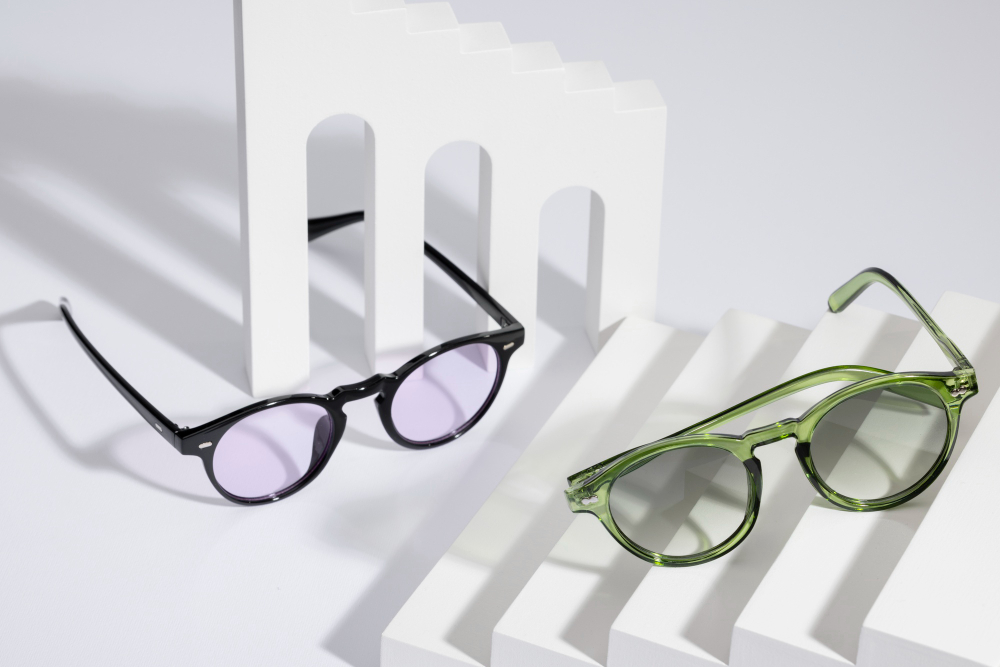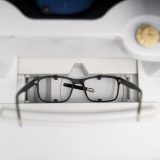
Glass or Plastic: Which Type of Lens Should You Choose?
When we shop for eyeglasses, we often find ourselves in a dilemma when choosing between plastic or glass lenses. To be honest, both materials come well-equipped with their own set of benefits and drawbacks. Your buying choice ultimately depends on a lot of factors like budget, your needs and lifestyle. In this blog, we will explore some of the differences between plastic and glass eye lenses- it will help you to make an informed decision. Let’s dig deeper without any further ado.
Plastic Lenses
Also referred to as organic lenses, plastic lenses have gained immense popularity in the last few years. Let’s check out the advantages of these plastic lenses at a quick glance:
- Impact Resistance: Plastic lenses are impact-resistant in nature- they won’t break or shatter due to impact that easily. If you are into outdoor activities, opting for these lens types will be a safe option. Also, glasses with plastic lenses are great for children.
- Lightweight: When compared to glass lenses, these plastic lenses are generally lightweight in nature. Do you wear your glasses for a prolonged time period? If yes, you can rely on plastic glasses with your eyes closed. Apart from that, people with strong prescriptions can invest their bucks in plastic glasses.
- Tint Options: The best part about plastic lenses is that they are available in a broad range of tints and colours. Customise your eyeglasses, thus suiting your vision needs and style.
- Affordability: Plastic lenses are cost-effective and budget-friendly. If you have a restricted budget and need glasses ASAP, you can consider these frames with plastic lenses without having any second thoughts.
Some of the disadvantages of plastic lenses include:
- Limited Resistance to Chemicals: When plastic lenses get exposed to certain chemicals, they eventually get damaged. Make sure to keep them away from cosmetics and cleaning products- place them inside your case and that’s it. Take extra care and your plastic glasses will love you back.
- Optical Clarity: It’s true that plastic lenses are potent enough to offer great optical clarity. However, if you compare them with glass lenses, there is a noticeable difference. People with higher prescriptions might face these problems.
- Scratch-Prone: Plastic lenses are quite prone to scratches. You might need to opt for protective coatings and frequent replacements, thus achieving top-notch durability.
Glass Lenses
Now, let’s check out the advantages and disadvantages of glass lenses at a quick glance. Starting with the benefits, scheme through the pointers:
- Scratch Resistance: With glass lenses, you don’t need to worry about scratches. These are super durable options that help you save money in the long run.
- Exceptional Optical Clarity: The optical clarity offered by glass lenses is unmatched and unparalleled. Since these lens options are not that prone to distortion, you can sport them and enjoy clear and sharp vision. If you are one of the individuals who need precise optical clarity, selecting frames with glass lenses will indeed be the best bet.
- UV Protection: The majority of the glass lenses have UV protection coating infused in them. Thanks to these protective layers, keeping UV rays at bay and preventing it from entering your eyes is highly possible now. What are you waiting for? Combat the harmful effects of UV rays and maintain healthy eyes with utmost ease.
On the other hand, the drawbacks of glass lenses include:
- Cost: In terms of price, glass lenses are definitely more costly than the plastic ones. This factor can be a potential deterrent for a few buyers.
- Fragility: Glass lenses are not very resistant to impact- they might break or shatter in unforeseen situations. If you are into sports or other outdoor activities, it’s better to avoid glass lenses.
- Weight: Last but not least, glass lenses are heavier when compared to plastic lenses. Wearing them for an extended time period might look like a task.
How Can You Choose the Best Lens for Yourself?
Now that we are aware of the advantages and disadvantages of both glass and plastic lenses, let’s check out some of the factors that will help you to reach a conclusion:
- Prescription Strength: Do you have a strong prescription? If yes, you can opt for glass lenses over the plastic ones.
- Budget: Are you on a tight budget? Well, there are highly functional and stylish glasses with plastic lenses.
- Comfort: When comfort is taken into consideration, add plastic lenses to your cart without any second thoughts. These lenses are easy to carry and lightweight.
- Customisation and Style: With plastic lenses, you will get the scope to experiment with various colours and tints for your lenses.
- Safety: Are you actively involved in sports? Well, plastic glasses are your go-to option. These are impact-resistant options that safeguard your eyes from getting injured.
- Maintenance: Once you are investing in glasses, you need to focus on their maintenance. In terms of proper care, glass lenses will give you less trouble. Since plastic lenses are prone to scratch, you might face difficulties in retaining them in their original form. On the contrary, glass lenses are delicate and can break easily. Put them inside their designated boxes and use a microfiber cloth and cleaning spray to clean them.
Your decision to choose between plastic and glass lenses ultimately boils down to your unique preferences and needs. Weigh them against your budget and lifestyle and make an informed decision based on that. Other than that, it is always a safe game to take recommendations from an optometrist. They will assess your eye health and offer personalised recommendations based on your lifestyle and prescription.
To end with, the perfect lens materials should help you to see comfortably, and clearly and meet all the safety needs. Take your time, assess your requirements and shop accordingly.


